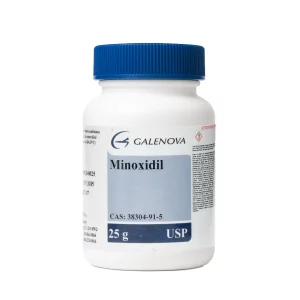Your cart is empty.
Your cart is empty.
Many people struggle to reach their weight goals because they follow outdated or incorrect advice passed down through social media and popular culture. Weight loss myths can lead to wasted effort, frustration, and slower results than evidence-based approaches would provide.
These misconceptions often create unrealistic expectations about how quickly you should lose weight and what methods work. When dealing with challenges like a weight loss plateau, understanding these myths becomes even more important. Some people wonder can stress cause weight loss or weight gain, which we’ll address. For those needing additional support, options to purchase weight loss injections online may provide helpful tools as part of a comprehensive approach.
Social media, marketing, and anecdotal advice spread misinformation faster than scientific research can correct it. Influencers and celebrities often promote quick fixes without understanding the complex science behind weight management. These platforms amplify personal success stories that may not apply to everyone.
Outdated studies and oversimplified health tips fuel many misconceptions about nutrition and diet. Research from decades ago sometimes gets repeated without acknowledging newer findings. Marketing companies also cherry-pick studies to support product claims, presenting incomplete pictures of the evidence. The importance of relying on credible, science-backed information cannot be overstated.

Not all carbohydrates are created equal, despite what many low-carb diets suggest. Your body needs carbohydrates for energy, especially to fuel your brain and muscles during physical activity. Complex carbs from whole foods provide sustained energy and important nutrients.
Low-carbohydrate or refined carbs like white bread and sugary snacks differ significantly from complex carbs found in vegetables, fruits, and whole grains. Refined carbs can cause blood sugar spikes and contribute to weight gain when consumed in excess. However, foods like sweet potatoes, quinoa, and oats support healthy eating patterns.

Exercise supports weight loss but diet plays a larger role in creating the calorie deficit needed to lose weight. Research shows that diet changes typically have more impact on the scale than exercise alone. You can create significant calorie deficits through food choices without spending hours at the gym.
The benefits of combining strength training and cardio are significant, but overtraining can actually hinder progress. Your body needs time to recover and rebuild muscle tissue. Too much exercise can increase stress hormones and appetite, making weight management more difficult. Rest and recovery are essential parts of any healthy plan.
Skipping meals can slow metabolism and lead to overeating later in the day. When you don’t eat regularly, your body may enter a conservation mode that makes losing weight more difficult. This survival mechanism developed to protect against starvation periods.
Consistent, balanced meals help maintain steady energy levels and prevent extreme hunger. Regular eating patterns support better decision-making about food choices. When you’re overly hungry, you’re more likely to choose high-calorie, low nutrition options.
Your weight naturally fluctuates due to water retention, hormones, and digestion. Daily weigh-ins can show increases even when you’re losing fat consistently. Women especially experience weight changes related to menstrual cycles that don’t reflect actual fat loss or gain.
Periods of no change on the scale can still mean progress in muscle gain or fat loss. Body composition changes often happen before scale weight changes become visible. Building muscle while losing fat may maintain stable weight while improving health and appearance. This connects to the weight loss plateau myth and how to approach temporary stalls. Understanding that plateaus are normal parts of the process helps maintain motivation.
While calorie quantity affects weight, nutrient quality affects overall health and body composition. A calorie from an avocado impacts your body differently than a calorie from candy. Nutrient-dense foods provide vitamins, minerals, and fiber that support optimal function.
Protein, healthy fats, and complex carbs support better results than processed foods with the same calorie content. Protein requires more energy to digest and helps preserve muscle mass during weight loss. Healthy fats help regulate hormones and increase satiety.
Foods that provide nutrition along with calories help you feel satisfied longer and support your body’s needs. Junk foods may fit into your calorie budget, but leave you hungry and lacking essential nutrients. Quality matters as much as quantity for sustainable results.
Supplements may assist, but cannot replace healthy eating and exercise for meaningful weight loss. The supplement industry often exaggerates benefits while downplaying the importance of lifestyle changes. Most weight loss supplements have minimal effects when studied scientifically.
Relying solely on powders, pills, or drinks for fat loss creates unrealistic expectations. These products work best when combined with proper nutrition and physical activity. Many people spend money on supplements while ignoring more effective strategies. Whole foods should form the foundation of any sustainable plan.
Timing is less important than total daily calorie intake and activity level for weight management. Your body processes food similarly whether you eat it at noon or midnight. The “no eating after 6 PM” rule has no scientific basis for most people.
Late-night snacking is often linked to high-calorie, low-nutrient foods, which may contribute to weight gain. People tend to choose chips, ice cream, or other processed options when eating late. The problem isn’t the timing but the food choices. If you’re genuinely hungry in the evening, choosing nutrient-dense options won’t sabotage your goals. Greek yogurt, a small piece of fruit, or a handful of nuts can satisfy hunger without excessive calories. Focus on what you eat rather than when you eat it.
Replace myths with healthy, effective practices based on solid research. Balanced meals that include all food groups provide better long-term results than restrictive approaches. Regular movement doesn’t have to mean intense diets or extreme exercise routines.
Encourage balanced meals, regular movement, hydration, and mindful eating as foundational habits. These simple practices support both weight loss and overall health without requiring dramatic lifestyle changes. Small, consistent improvements compound into significant results over time.
That one single method works for everyone; weight loss is highly individual. What works for your friend may not work for you due to differences in genetics, lifestyle, and health conditions. Successful approaches need customization based on personal factors and preferences.
Yes, stress can affect hormones, appetite, and metabolism in different ways for different people. Some people lose their appetite during stressful periods, while others turn to comfort foods. Chronic stress disrupts sleep and hormone balance, making weight management more challenging regardless of direction.
Not usually; it often leads to muscle loss, nutrient deficiencies, and rebound weight gain. Rapid weight loss typically involves extreme restrictions that aren’t sustainable long-term. Bodies that lose weight too quickly often regain it just as fast when normal eating resumes.
Some foods may slightly boost metabolism, but the effect is minimal compared to overall lifestyle habits. Green tea, spicy foods, and protein have small metabolic effects, but they won’t create significant weight loss alone. Focus on overall eating patterns rather than individual “fat-burning” foods.
Not entirely; they are a natural part of the process, but can be managed with strategic changes. Bodies adapt to new weight and activity levels, temporarily slowing progress. Understanding this normal response helps maintain motivation and adjust strategies when needed.

Minoxidil 25mg - Oral vasodilator for blood pressure management. Cardiovascular foundation support, pharmaceutical-grade standards, expert monitoring required.

Acarbose 50mg 120 Tablets - Gentle introduction to glucose control. Three-times daily with meals, precision-formulated tablet strength.

Dasatinib 20mg 60 Tablets - Flexible pediatric-strength dosing option. USP standards compliance, anytime administration, gradual increase capability.
Unlock savings on bundles and elevate your online experience today!